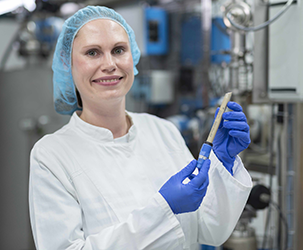
Glass-free pH sensors deliver improved CIP stability
Mike Edwards
Products Endress+Hauser Memosens pH measurement video
Endress+Hauser has introduced a new generation of ISFET sensors made with PEEK (polyetheretherketone) to improve performance in glass-free pH measurement. With the new design, the ISFET sensors — Memosens CPS47D, CPS77D and CPS97D — are said to offer consistent accuracy, maximum product safety, and up to six times greater clean in place (CIP) stability than the previous generation of ISFET sensors.
The Endress+Hauser units are built to perform reliably through at least 25 CIP cycles. ISFET (Ion-sensitive field-effect transistor) sensors can be used in any applications where glass pH sensors are not desirable due to challenging process conditions or risk of breakage. (See video introduction below.)
Glass sensors are avoided in food and beverages applications and in the life sciences industries, since entire production batches can become contaminated in the event of glass breakage.
The Memosens CPS47D and CPS77D deliver stable and reproducible measured values, even after sterilization and autoclaving up to temperatures of 135°C and come with all the usual hygiene approvals for the food and life sciences industries, such as USP, EHEDG and 3A, and are TSE-/BSE-free.
With its hygienic design and materials, the Memosens CPS77D also boasts excellent bacterial tightness to ensure food production remains free from contamination. Chemical processes at low temperatures and the presence of a high proportion of organic solvents or solids pose specific challenges for pH measurement.
Even at low temperatures, ISFET sensors such as the Memosens CPS97D have a fast response time and are chemically stable thanks to their rugged PEEK construction. Also, their open diaphragm means that they do not become clogged even in the case of high solids concentrations. The firm gel used in the reference also is extremely chemical resistant.
Print this page